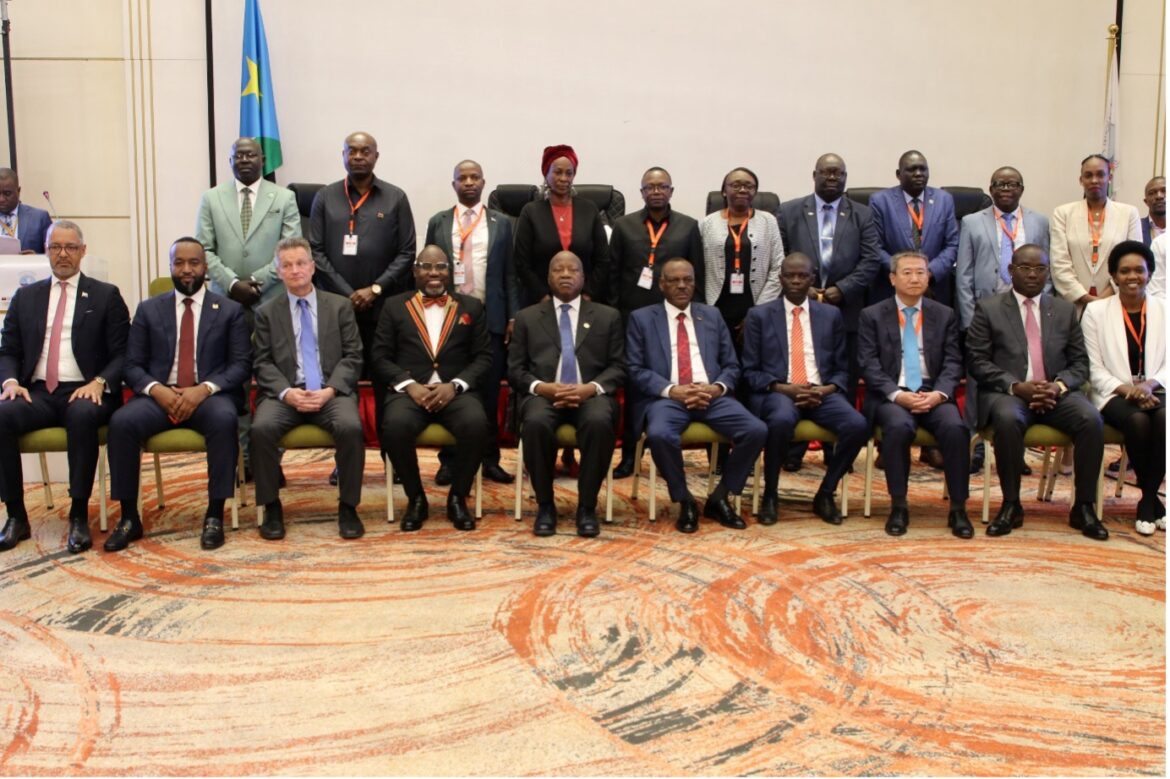By William Garang
At the Seventh Ministerial Summit of the Great Lakes Region, leaders outlined a plan to boost mineral value addition, aiming to empower local artisanal miners and generate job opportunities for young people across the region. Mining Minister Martina Gama Abucha highlighted the wealth of valuable minerals in the area, including gold, copper, diamonds, uranium, manganese, lithium, nickel, cobalt, iron ore, bauxite, and marble.
“When you talk about value addition, we are saying we want to sell to them [European] products, not raw material. We are not saying no, we are saying, can we do value addition in Africa?” he said, “So, in our meeting today, and even in the future, we should be driving towards value addition, but more important is illegal exploitation.”
He underscored that the Great Lakes region must organize the mining sector, which has been subjected to unscrupulous dealers for years, by embarking on value addition to create job opportunities.
“We will have thousands of jobs, maybe millions of jobs across the continent of Africa,” Abucha noted.” He continued, “It will help prevent or solve some of our crises happening in North Africa. Where we see on a daily basis, thousands of our people dying – trying to cross the Mediterranean Sea.”
Mr. Abucha emphasized that political instabilities in Africa, and particularly the Great Lakes, must be prevented, adding that member states must collaborate, regulate, and modernize the mining sector.
“I want to inform this forum South Sudan has officially declared a public company for trading. We shall start trading in the next days.” he declared.
European Union Ambassador to South Sudan, Timo Olkkonen, cites engagement and commitment of all countries are needed to responsibly seize the potential of the Great Lakes mineral wealth for the benefit of people.
“In today’s multicolored world, characterized by unseen levels of conflict and intense global demand for critical raw materials. There is ever bigger momentum for regional partnerships governed by common interests and mutual trust that allow pursuing ambitious objectives such as the development of regionally integrated mineral value chains for economic growth.” said Timo.
The International Conference on the Great Lakes Region (ICGLR) Initiative against the Illegal Exploitation of Natural Resources has proven to be an effective tool for promoting responsible mineral governance in the Great Lakes region, a sentiment echoed at the recent summit.
The Seventh Ministerial Summit, attended by mining ministers from across the region, emphasized the need for increased mineral value addition and encouraged greater regional cooperation to facilitate cross-border trade in resources.
Participants also called for member states to invest in geoscientific research and develop reliable geological data systems. These initiatives aim to attract investments that support viable mining projects and stimulate economic growth.
South Sudan hosted the 25th meeting of the ICGLR audit committee on November 4-5, followed by the Seventh Ministerial Summit on mineral value addition and cross-border trade from November 6-8.
The ICGLR, an inter-governmental organization, was established in the 1990s during conflicts in the Democratic Republic of Congo and the Rwandan genocide. It currently includes 11 member states: Burundi, the Central African Republic, the Republic of Congo, the Democratic Republic of Congo, Kenya, Uganda, Rwanda, Sudan, Tanzania, Zambia, Angola, and South Sudan.
Last October, ministers from the Great Lakes region convened in Nairobi to develop a strategy for combating the illicit mineral trade. The proposed measures include harmonizing legal frameworks, formalizing the mineral sector, increasing transparency, and creating a database to trace the origins of minerals.



